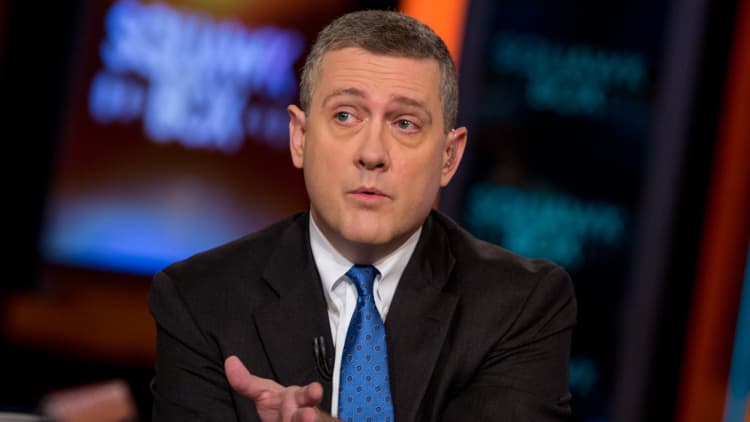
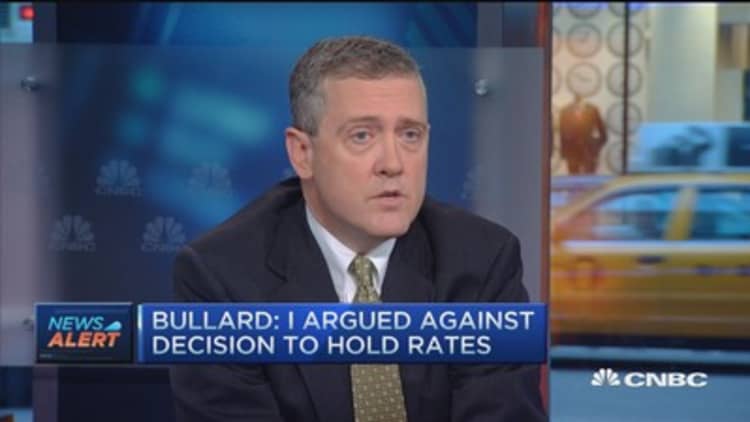
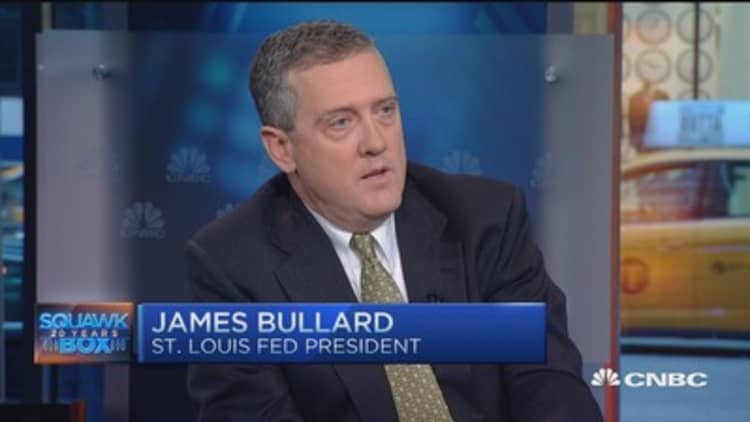
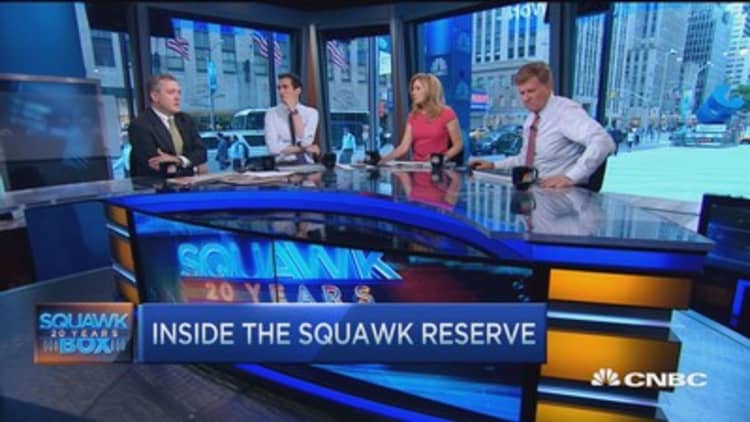
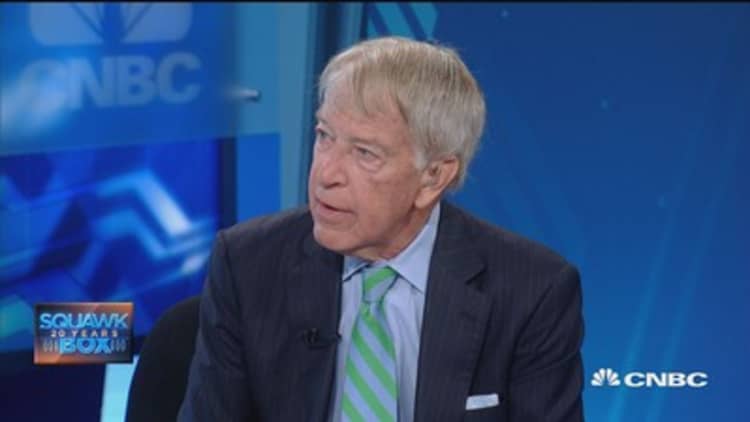
St. Louis Fed President James Bullard said Monday it's time to increase interest rates, and policymakers should not react to turmoil in financial markets.
The Federal Reserve's decision to leave rates unchanged last week was a "close call," Bullard said—leaving open the possibility that rates could go higher at the Fed meeting next month. "There's a chance," he added in a CNBC "Squawk Box" interview. "[But] the problem with going from one meeting to the next is how much information has really changed."
"I would have dissented on this decision," said Bullard, who is not a voting member of the Fed's policy setting committee. The lone dissenting vote on Thursday's decision was Richmond Fed chief Jeffrey Lacker.
Bullard said there should be a news conference by the Fed chief after every meeting, instead of the current every other meeting schedule. "You'd smooth it out, making every meeting the same. There's no additional importance given to any meeting," he said. The gathering next month does not have a news conference scheduled, leading many market watchers to discount October and look to December's meeting, which does have a Janet Yellen news conference.
As things stand, Bullard said, "there's a powerful case to be made that it's time to raise interest rates. And the case is not complicated. ... Policy settings are [in] an emergency. The economy itself, the goals of the committee, have essentially been met." Even if rates go up, monetary policy will still be accommodative, he added.
Stocks were crushed Friday, with the Dow Jones industrial average losing nearly 300 points, a day after the Federal held off on hiking interest rates. "The Fed cannot permanently raise stock prices. The idea that the Fed is going one way or the other and this is what's driving the stock market is not true," Bullard said.
Read More Bullard vs Cramer on Fed impact on stock market
On reasons to wait, policymakers Thursday expressed concerns that a possible global economic slowdown and recent financial turmoil could hurt the U.S. economy. But Bullard said those concerns are probably overblown. "The impact of China coming directly back to the United States is relatively small," he said. "China is slowing. [But a] hard landing [is] a long shot at this point."
American CEOs in charge of operations in China are concerned, he acknowledged. "But that's not the U.S. economy. The U.S. economy is much less exposed to China than some of the biggest companies individually."
Fed officials Thursday pared their projections for economic growth to 2.3 percent for next year. The Fed pegged inflation at 1.7 percent in 2016, still below its 2 percent target, even as the unemployment rate was forecast to fall to 4.8 percent. Bullard said unemployment is set to go into the 4 percent range not matter what the Fed does: "It's already baked in the cake."
"We have a strategy. The strategy is go a little bit earlier and go gradually, so that we're not marching up 25 basis points a meeting the way were were in 2004 to 2006, which ultimately turned out to be behind the curve anyway," Bullard said. "That will give us a lot of flexibility to react to all the problems that we see out there and the low inflation issue."
He argued the alternative would be to not act until absolutely necessary, which could result in an abrupt hike or series of hikes. "That would be a 1994-type scenario," he said, "and that is very much a volatility-inducing kind of scenario."
Read MoreFed's Williams: Not raising rates was a 'close call'


